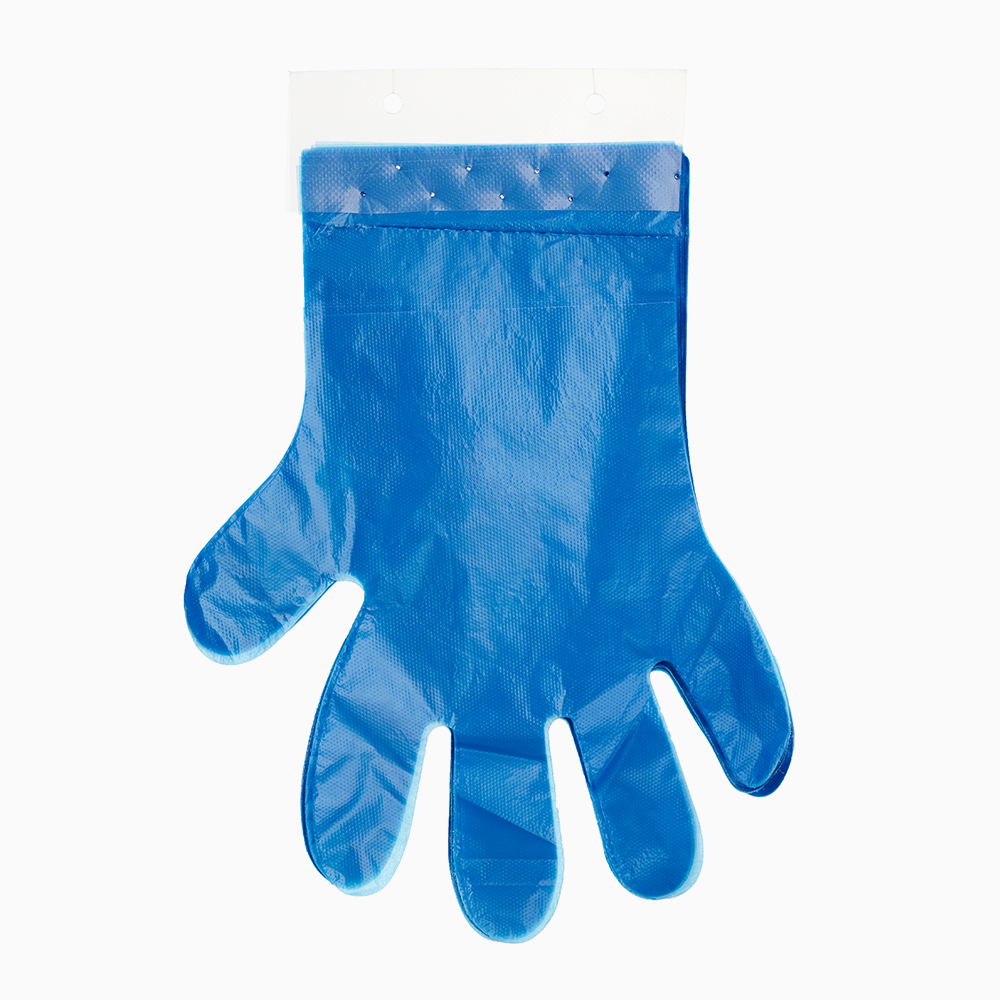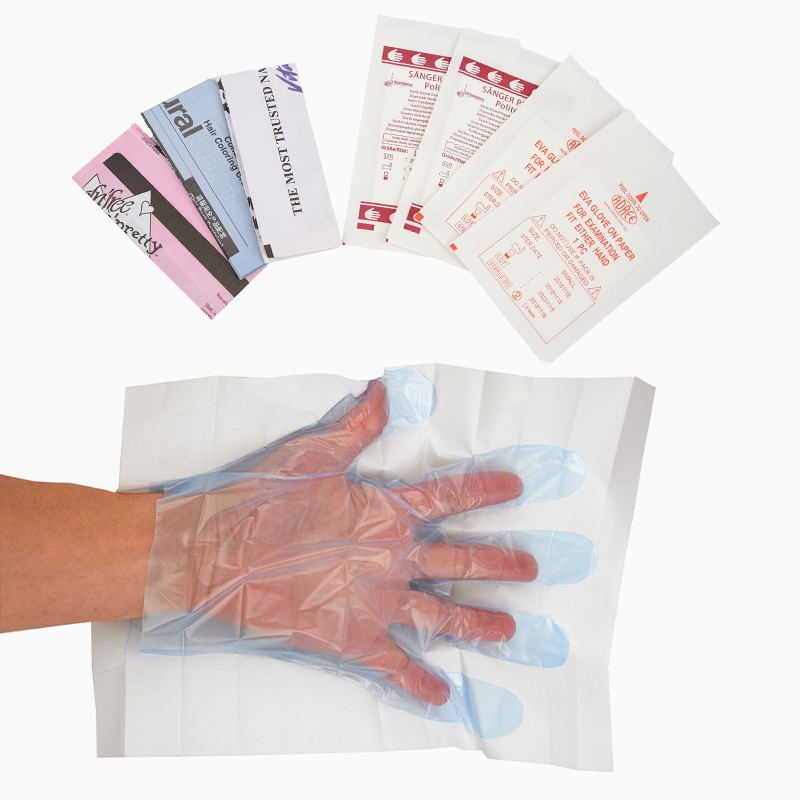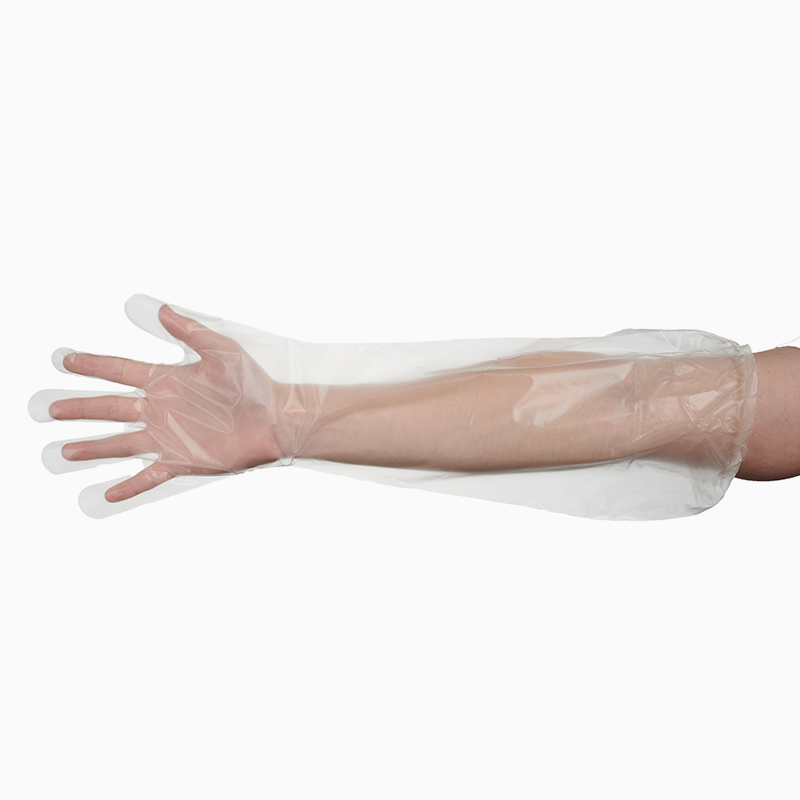Disposable Vinyl Gloves and Polyethylene gloves are both disposable and commonly used in fields such as healthcare, food processing, laboratories, and beauty salons.

DISPOSABLE POLYETHYLENE GLOVES
Disposable Polyethylene gloves are mainly made of polyethylene and are cheaper, soft, comfortable, and breathable. However, they have poor strength and durability, making them suitable for simple tasks such as light cleaning or food processing but not for tasks that require waterproof or chemical protection.

High-density polyethylene gloves (HDPE gloves): These gloves are usually thinner and suitable for mild, non-chemical tasks such as simple cleaning.
Low-density polyethylene gloves (LDPE gloves): These gloves are softer and more durable than HDPE gloves and are suitable for longer tasks such as food processing and beauty salons.
CPE gloves (polyethylene/chlorinated polyethylene copolymer) disposable gloves are a new type of disposable gloves made of both polyethylene and chlorinated polyethylene materials. They have the advantages of environmental health, high comfort, strong durability, good waterproofing, good flexibility, and low price, and are widely used in fields such as healthcare, food processing, laboratories, and beauty salons.

MOSU gloves are a new type of disposable gloves with the following characteristics:
- Environmental Health: MOSU gloves do not contain harmful substances such as latex, PVC, plasticizers, etc., and meet environmental health standards, making them safer to use.
- High Comfort: MOSU gloves are soft, comfortable, fit the shape of the hand, and have a good hand feel.
- Strong Durability: MOSU gloves have excellent tear resistance and puncture resistance, can better protect the hands, and have a longer service life.
- Good Breathability: MOSU gloves have good breathability, can reduce hand sweating and discomfort caused by lack of breathability.
- Good Flexibility: MOSU gloves have good elasticity and flexibility, can better adapt to hand movements, and are more convenient to use.
- Not Easily Allergic: MOSU gloves do not contain latex protein, making them safer for people who are allergic to latex.
In general, MOSU gloves have the advantages of environmental health, high comfort, strong durability, good breathability, good flexibility, and low allergy, becoming a new type of disposable gloves widely used in fields such as healthcare, food processing, laboratories, and beauty salons.
It should be noted that these classifications of PE gloves are not strict, and different manufacturers may have different classification standards. When selecting gloves, it is necessary to choose the appropriate type of gloves according to task requirements.
DISPOSABLE VINYL GLOVES
Disposable Vinyl gloves are mainly made of polyvinyl chloride, are relatively expensive, but have better strength and durability than PE gloves, and are more chemical-resistant and waterproof. They are suitable for tasks that require higher-level chemical protection, heavy cleaning, or food processing.

Vinyl (polyvinyl chloride) gloves are a common type of disposable gloves, and their advantages and disadvantages are as follows:
Advantages:
- Strong Acid and Alkali Resistance: Vinyl gloves have good acid and alkali resistance and are suitable for some tasks involving acids and alkalis.
- Strong Chemical Resistance: Vinyl gloves have strong chemical resistance and are suitable for tasks that require chemical protection.
- Waterproof: Vinyl gloves are waterproof and suitable for tasks that require waterproof protection.
Disadvantages:
- Low breathable: Disposable Vinyl gloves do not have breathability, which can cause sweating and discomfort due to lack of ventilation.
- Skin allergies: The plasticizers and other chemical components in Disposable Vinyl gloves may cause skin allergies or irritations.
- Harmful to the environment: Harmful gases may be released during the production of Disposable Vinyl gloves, which is not conducive to environmental protection.
- Not suitable for high-temperature environments: Disposable Vinyl gloves have poor heat resistance and are not suitable for high-temperature operations.
In summary, Disposable Vinyl gloves have advantages such as strong acid and alkali resistance, good durability, good waterproofness, good antibacterial properties, and low cost. However, attention should be paid to the disadvantages such as lack of breathability, possible skin allergies, environmental harm, and unsuitability for high-temperature environments. When choosing, it is necessary to comprehensively consider the specific use environment and task requirements.

Which is better Disposable Disposable Polyethylene gloves or Disposable Vinyl Gloves?
Disposable Polyethylene gloves are suitable for simple tasks, while Disposable Vinyl gloves are suitable for higher-level protective tasks. The choice of glove material depends on your task requirements and budget.










